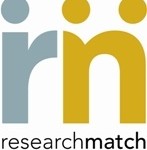On Friday, NINDS director Walter Koroshetz made an interesting remark in a lecture to Emory’s Department of Neurology. He said that in the 2016 National Institues of Health budget, neuroscience is now the largest “bucket of money,†especially with the recent boost in funding for Alzheimer’s research. That’s larger than the bucket for cancer. To be sure, biomedical research in general got a boost from Congress, with the NIH receiving its largest increase in a decade, and cancer is still a big deal!
Koroshetz explained that neuroscience research is spread out among NINDS (National Institute for Neurological Disorders and Stroke), NIMH (National Institute of Mental Health), NIDA (National Institute for Drug Abuse) and several others, while cancer research is concentrated at the National Cancer Institute. [Here’s some official category tracking that the NIH does – his breakdown checks out.]
Koroshetz highlighted a project from Dieter Jaeger and Garret Stanley that is part of the White House’s BRAIN Initiative focused on mapping brain circuits and connectivity. He also noted NINDS’s efforts in promoting translational research, since pharmaceutical companies were frustrated by repeated failures in the 1990s with difficult areas such as stroke, and the R35 mechanism for funding “outstanding investigators†for up to eight years continuously.









 If you’d like to consider joining a clinical trial, a new secure website will make it easier.
If you’d like to consider joining a clinical trial, a new secure website will make it easier. 